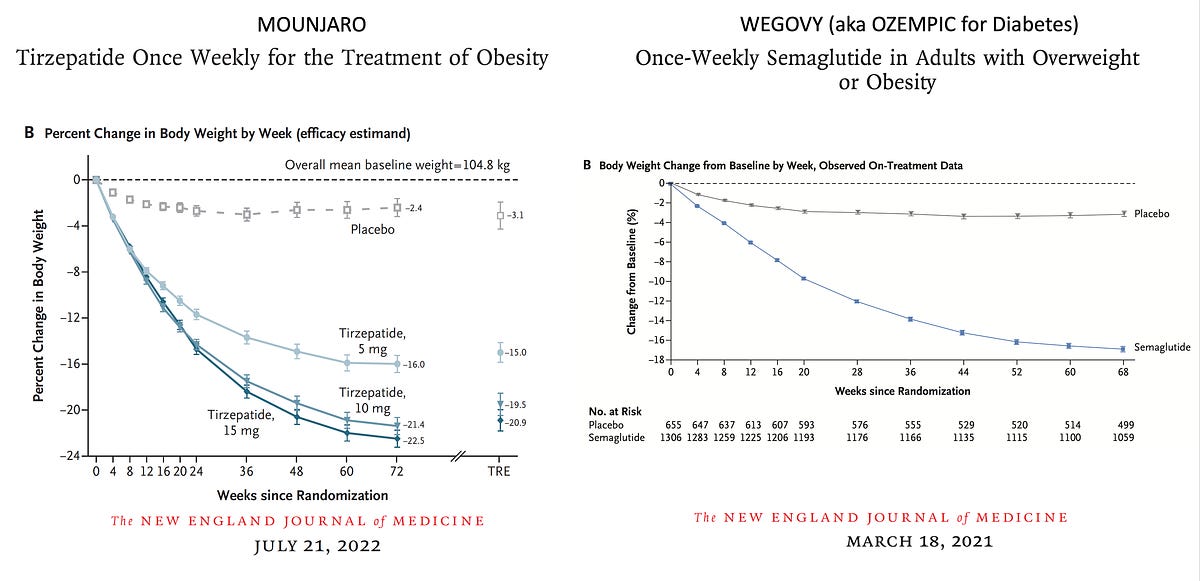
September 5, 2024
The Fact Concerning Weight-loss Tablets


- Some, however not all, insurance coverage strategies cover medicines that treat obese and weight problems.
- If you are obese or have weight problems, you could be able to drop weight with a way of living program that alters your behaviors and boosts your consuming and exercise practices.
- AstraZeneca, the business that makes Byetta, has a program to help with your out-of-pocket prices.
- Usual negative effects consist of headache, hypoglycemia, decreased weight, and abdominal pain.
What Do Medical Professionals Suggest For Fat Burning?
The margin of mistake for the age groups found in the "effectiveness" table is much larger, about ± 11.0 portion points, with a margin of error of concerning ± 6.0 portion factors for all grownups. Results from one of the most current survey, carried out March 4-9, 2024, are based on reactions from 5,577 grownups, aged 18 and older, staying in all 50 U.S. states and the District of Columbia as part of the Gallup Panel ™. For outcomes based on this example of nationwide grownups, the margin of tasting error has to do with ± 1.5 portion factors at the 95% self-confidence degree, layout impact included. "And the means they do that is they begin at a really reduced dose and each month you most likely to the following greater dose.Why The Future For Americans With Excessive Weight Is Looking Brighter In 2024
In feedback, semaglutide and tirzepatide were added to the FDA Drug Shortages Database, enabling intensifying drug stores to create generic variations. In turn, telehealth companies started offering the medicines at rates far lower than the ordinary $1,300 each month paid for brand-name GLP-1s. Professional tests are a fundamental part of the process whereby brand-new medicines appear. Scientist examination experimental drugs to learn if they're risk-free and reliable.What are the adverse effects of weight loss medicine?
The most typically reported ones are nausea or vomiting and throwing up, heartburn, bloating, belly cramps, looseness of the bowels and/or irregularity. While these signs are usually mild and short-lived, they might make it difficult to stick with the therapy.
Are Anti-obesity Medicines Reliable?
In the action 1 test, these stomach side effects took place more often in those receiving semaglutide vs. sugar pill (74.2% vs. 47.9%). However, most of these were mild-moderate in extent; major damaging events occurred in 9.8% of those receiving semaglutide vs. 6.4% of those on sugar pill. Throughout all RCTs, individuals experienced a typical rise in heart price of 1-4 beats per min (bpm); 26% of people on semaglutide vs. 16% of those on sugar pill had enhanced heart rates by 20 bpm or more (84 ). Among clients with T2D, hypoglycemia occurred in 6.2% of clients treated with semaglutide vs. 2.5% of clients on placebo (89 ). Psychological negative effects did not become a treatment-related unfavorable event, and a real-world friend research study of over 200,000 patients located no proof for enhanced risk of suicidal ideation (102 ). Diethylpropion (brand name Tenuate), one more sympathomimetic and derivative of bupropion, is additionally an approved short-term medication for dealing with excessive weight. When combined with lifestyle and behavior modifications, consisting of healthy and balanced consuming and boosted physical activity, prescription drugs aid some individuals drop weight and preserve weight-loss. Generally, after 1 year, grownups who take prescription medicines as part of a lifestyle program shed 3% to 12% more of their starting body weight than people in a way of life program that do not take medication. Less information is readily available for kids ages 12 and over, however ranges seem similar. Prescription weight management medications may be a choice for adults or children that have significant health and wellness risks, such as high blood pressure, kind 2 diabetic issues, or high cholesterol and can not control their weight with diet and exercise alone. " People did lose even more weight with it," she claims, "however their altitudes in blood pressure continued to be high even after they quit the medication. ... So, I truly do not advise ephedra." " It resembles just how we talk about blood pressure drugs," claims Dr. Tariq. " Which anti-obesity drug is finest relies on the individual's age, level of excessive weight, whether they're diabetic, if there's a history of smoking reliance and various other factors." " If a person has a BMI of 30 or greater, fat burning medications absolutely come to be a consideration," says Dr. Tariq. " But there are times when an individual with a BMI lower than 30 could be a good candidate, too." " As an example, orlistat jobs by reducing the absorption of fat. And the most recent weight-loss drug, tirzepatide, in fact impacts both hunger and satiety."Social Links